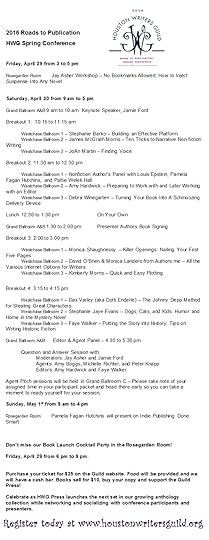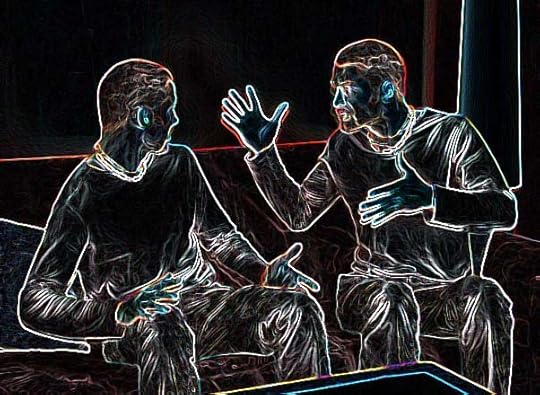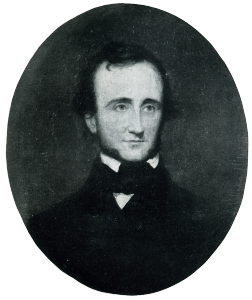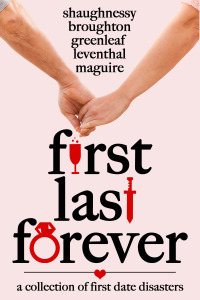Monica Shaughnessy's Blog
April 26, 2016
Killer Opening Lines
 I’ll be speaking at the Houston Writers Guild Annual Conference this weekend – Saturday, April 30th. I’m giving a break-out session on Killer Openings: Nailing Your First Five Pages. While creating this lecture, I was reminded of how terribly hard it was to craft an opening line, paragraph, and scene for my middle grade book, Doom & Gloom.
I’ll be speaking at the Houston Writers Guild Annual Conference this weekend – Saturday, April 30th. I’m giving a break-out session on Killer Openings: Nailing Your First Five Pages. While creating this lecture, I was reminded of how terribly hard it was to craft an opening line, paragraph, and scene for my middle grade book, Doom & Gloom.
Brief background on Doom & Gloom: it’s a superhero action adventure novel about a kid with xeroderma pigmentosum (XP), a life-threatening sun allergy. Because of the XP, Dane Winter must shun the light as he valiantly tries to save his family’s town.
Throughout the years, I rewrote these crucial opening pages easily a dozen times.So I decided to go back into the archives (i.e., my hard drive) and pull up old versions so I could talk about them during my presentation. Yikes. Here are just a few of the opening lines of Doom & Gloom, presented chronologically, along with my comments in red.
Oct. 2008: “Tell me that wasn’t a cat,” Dane said. “It didn’t feel like a cat under the wheels. Holy crap, this is cool.” Too heartless. FYI…it wasn’t a cat. Just a distraction.
December 2008: “In two minutes, I can get a second degree burn from sunlight,” Dane said. Better…actually, not bad.
November 2009: “Holy crap! Are you trying to kill me?” Dane shouted. Too fast and furious. The reader can’t figure out what’s going on.
August 2010: Iris’s cry for help excited Dane. Um, what? No.
December 2010: Dane Winter hiked his laser gun over his shoulder and sprinted through the gloomy arena toward Iris. An okay line, but it doesn’t sizzle.
April 2012: Dane Winter hiked his laser gun high on his shoulder and sprinted through the gloomy arena toward the last place he’d seen Iris. Clearly over written.
June 2012: Dane Winter had mastered the dark like no other twelve-year-old. Getting there, but a little stilted for the middle grade market.
April 2013: Dane Winter had never been afraid of the dark. The winner! This is a brief, punchy statement that hints at character, establishes voice, speaks of theme, and provokes curiosity. It’s also is perfect for middle grade because these kids still remember what it’s like to be afraid of the dark (some probably still are).
And these, good people, are the lines that made it into a saved version. This doesn’t reflect the countless other versions that I wrote and immediately erased. As you read through them, it’s easy to dismiss the “not quite right” sentences. But at the time, I thought they were brilliant.
Bottom line: an opening line should briefly telegraph of the entire novel. No small task, indeed. Some opening lines accomplish this, some don’t. But the best ones do.
Don’t believe me? Read the opening line of one of the world’s most famous books:
“In the beginning God created the heavens and the earth.”
From this one simple statement, authorial command is established, the main character is mentioned, and a unique set-up prefacing the entire book is supplied. Pretty cool, huh?
As you’re reading today, go back and discover a few of your favorite opening lines. And if you’re in the Houston area, sign up for the conference to hear me (or others) speak in person. It promises to be a great time!
Here’s the schedule:



March 24, 2016
Lone Star Book Festival
Hey, guys! Just wanted to share a really cool Houston literary event. Yes, you read that right. A literary event. In Houston. Not Austin. I’ll be speaking on a Friday panel. Hope to see you there!



March 8, 2016
The Green Children of Woolpit
 I first heard about the Green Children of Woolpit, England while watching a UFO conspiracy show. The expert theorized, of course, that the children had come from another planet. But after reading the “historical account” for myself, I learned their origins were decidedly terrestrial, stemming from a middle earth philosophy. Then and there, I knew I had to tell, or rather, retell this irresistible story.
I first heard about the Green Children of Woolpit, England while watching a UFO conspiracy show. The expert theorized, of course, that the children had come from another planet. But after reading the “historical account” for myself, I learned their origins were decidedly terrestrial, stemming from a middle earth philosophy. Then and there, I knew I had to tell, or rather, retell this irresistible story.
While writing “The Bells of Bury St. Edmunds,” I included several Old English words, including that of Wlpit—the authentic spelling of Woolpit at the time. I also researched medieval music, including the piece referenced in my story, “Divinum Mysterium,” a chant with roots in the twelfth century.
Here’s what we know about the mysterious children:
During King Stephen’s reign (1092 – 1154)—not to be confused with Stephen King’s reign (1974 – current)—a brother and sister accidentally fell into a pit outside of Woolpit, England. When a reaper found them, their green skin startled him. Despite his fear, the man took them to Woolpit where townsfolk isolated the otherworldly visitors in a hut for several days to study them. The villagers learned many things about the children during this time: the sun bothered their eyes terribly, they would only eat raw beans, their clothes were made of foreign fabric, and they spoke a strange language. Once villagers deemed them safe, brother and sister were sent to serve Sir Richard de Calne, a knight who purportedly lived between Woolpit and Bury St. Edmunds on Wikes Manor.
Shortly after the pair’s arrival, the brother died. The sister, renamed Agnes, thrived and continued to serve the knight for years to come. Once she learned enough English, she explained to her master that she was from St. Martin Land, a faraway place of perpetual twilight. She said that she and her brother were tending their father’s cattle when they heard a strange chiming sound. They followed this music, climbing through a cave, only to emerge near Woolpit. After exhibiting “loose and wanton” conduct, Agnes eventually married a man from King’s Lynn, a neighboring town, and had many children.
But the way I imagined it, Agnes was a very, very bad girl first. 
If you want to read my spooky, gothic retelling, just sign up to receive my newsletter and you’ll get a free copy. “The Bells of Bury St. Edmunds” is 12k words long. So you’ll be turning pages for a while. If you’d like to read a more “factual” account of these children, check out Woolpit, England’s website. The Wikipedia entry does a fair job of explaining it here. I hope you find this old legend as intriguing as I did. I had fun writing this story!
—————>
Your turn, dear reader. Ever heard of this myth? Do you think it’s true? If so, where do you think the pair came from?


February 10, 2016
Why The Next 10 Years of Writing & Publishing Will Smash the Last 10
 I’m never the last to know about a trend. I usually catch on at about the half to two-thirds mark – early enough to still glean some benefit, but too late to really take full advantage of it. This was never more apparent than yesterday.
I’m never the last to know about a trend. I usually catch on at about the half to two-thirds mark – early enough to still glean some benefit, but too late to really take full advantage of it. This was never more apparent than yesterday.
Tuesday afternoon, I attended a webinar on marketing automation given by the 10K Customers guy. Nice enough fellow. Eye-opening info. But he mentioned a tool I’d never heard of, so I thought I’d give it a look. It’s called KDSpy and sells for $47 bucks. It basically gives you intel on keywords, competitive sales, ranks, etc., all at the push of a button. Holy smokes. Instead of trying to dream up creative and original plots in genres I deeply care about, I could’ve just clicked around and come up with a best-selling formula instead.
Here’s the worst part: I’m only half kidding.
People LOVE my Cattarina Mysteries. Love them. I’ve gotten emails from customers telling me they hope I’m not serious about ending the series. But the books don’t have the visibility I want, despite glowing reviews and great feedback. After a cursory glance at the top selling cozy mysteries, I know now I shouldn’t have written anything historical or creepy or anything from the perspective of a cat or anything involving a famous horror author. I should’ve written something contemporary and cute involving ghosts and possibly witches and definitely a mysterious romance. Except I wouldn’t change a thing about Cattarina. Not a thing. She is who she is, and her stories needed to be told. I don’t regret writing them. And yet…
At the beginning, I’m sure only the shady public domain book people and the 101 Jokes About Yo Mamma people used tools like KDSpy. The something-for-nothing authors. Now, however, even I’m thinking about buying the software just to gain a competitive edge. To quote Cattarina, “Egad!”
And then, I read about title creators on The Book Designer blog and tried out portent.com. All I can say now is, I know where all those link bait people get their headlines from. You know the ones: 7 Dangerous Foods to Avoid! Why Your Nanny May Be Stealing From You! The Sky is Falling! Anyway, in the spirit of trying something new, I decided to run this post through the title generator and voila! Now you know why this post HAS ABSOLUTELY NOTHING TO DO WITH PUBLISHING FORECASTS. Except if you’re reading this, that means you “cared enough to click.”
Which only makes me worry.
Have we gotten so concerned about the science of publishing that we’ve forgotten about the art of writing? Is it all a game, with prizes awarded to those with the cleverest keywords and not the cleverest turns of phrase?
I think there is a balance to be struck. More and more, though, I’m leaning toward putting the science of publishing first, at least in the inception stages of a book. I think it’s taken me so long to come to this because I started writing before self-publishing was a “thing.” In order to get published, you had to write well. Well enough to get a publisher or an agent to notice you. And I did. But then the paradigm shifted. Now it’s about capturing as many eyeballs as possible, and thinking this can be done through quality writing alone is naive at best, especially when other GOOD writers are employing every trick in the book, too.
I suppose this was inevitable, wasn’t it? When you turn writers into publishers, perspective–and behavior–definitely changes.
———————>
Your turn, dear reader. Are click-bate headlines the next big thing in titling books? Do you commonly use tools like KDSpy to create your next masterpiece? Do you handle keywords like A BOSS? Or are you wondering about the fine line between art and science, like me? I’d love to talk!


January 22, 2016
Simple Math: A Sci-Fi Thriller Excerpt

The following is an excerpt from my sci-fi short story, “Simple Math.” You can find the full story in Lethal Lore, my collection of suspense/horror tales. Since most readers know me through my cozies, I thought I’d introduce this new writing with a sample. Lethal Lore is FREE this weekend, so grab your copy before the price goes back up on January 25th.
<<>>
SIMPLE MATH
LIGHTNING WAS STATISTICALLY UNLIKELY to strike the ValuMart, given the height of surrounding buildings. But statistics have no influence on fate, and at 11:46 p.m., a streak blazed through the ceiling, knocking Dr. William Roberson to the floor near checkout stand #8. Shaken, he blinked away the green spots from his eyes and sat forward, pushing aside the breath mints, gum, lip balm and other impulse items he’d spilled with his fall. “What happened?” he asked the cashier.
“Lightning, mister. Storm is getting worse.” The young Hispanic woman nodded to the rain coursing down the blackened windows. She remained behind the counter, untouched by the phenomenon. “You okay? You want me to call the ambulance? Or the manager? Jorge’s on break, but I can wake him.”
William wiggled his fingers in his ears. The thunderclap had momentarily dulled his hearing. He inspected the ceiling. No char, no smoke, not a tile out of place. He was losing it, plain and simple. “You mean it struck outside?”
“Big flash in the parking lot.” She shrugged. “One minute you were paying for your stuff. The next minute—¡pum!—you were on the floor.”
William glanced at the counter. His hunting knife lay in a white plastic bag, ready to take home like a roll of paper towels or a box of frozen peas. If not for this strange turn, he’d have been half way to the motel by now.
The cashier continued, “You must’ve had a seizure. My abuela has them all the time. It’s the flashing at night. Sets off the loco in her brain, but she comes through okay.”
William grabbed the counter for support and pulled himself upright. Other than wobbly knees and a persistent ringing in his ears, he felt okay, well enough to carry out tonight’s plan. Then again, how healthy did he have to be to commit suicide? When he reached for his purchase, he noticed a pair of denim-clad legs jutting from behind the cashier’s station. The man’s body—he presumed it was a man—lay partially hidden behind the dividing wall between checkout lanes. The phantom lightning had claimed a second victim. “I’m fine, but I’m not sure about him.” He nodded to the figure on the floor. “Better call your manager.”
The cashier peered over the top of the divider. “¡Dios mio!”
As William approached the unconscious stranger, the cashier’s voice droned over the loudspeaker: Jorge, caja siete. Jorge, caja siete. ¡Rapido! He knelt and examined the man for signs of injury, noting their similar taste in clothing: blue jeans, brown oxfords, a pale blue button down that could’ve been his own if not for tiny pinstripes. The stranger’s neck and hands had a familiar cast to them, too, as did his wavy brown hair. The parallels unnerved William. He shook the guy’s shoulder and shouted, “Hey, you okay? Can you hear me?”
The man rolled over and rubbed his face. “What the hell happened?”
William scrambled backward in shock. Aside from an opposite hair part and vaguely different clothing, he and the other man were identical. Identical. William had stared into those same hazel eyes in the mirror and shaved around that same Adam’s apple every morning. He reached for the other man’s sleeve to make sure his eyes hadn’t betrayed him, to make sure the lightning hadn’t scrambled his brainwaves.
The stranger jerked his arm away. “Who are you?” he shouted at William. He jumped to his feet and faltered against the bag carousel, unable to gain balance. “Who the hell are you, and why do you look like me?”
William wanted to speak, but the words wouldn’t come. Just this morning, he’d lectured on the equal a priori probability postulate, fielding questions from eager Ph.D. candidates and snuffing them like candles. Now he couldn’t remember his own name.
“Wait, are you twins?” the cashier asked. She cradled the phone in the crook of her neck. “Why didn’t you say so in the first place?”
The other man looked at her then to the knife on the counter. Before William could stop him, the stranger grabbed the bag from the counter and fled the store. “Wait! Come back!” William cried. He gave chase, pushing past a group of Hispanic men in the foyer. Outside, cold drops hit his skin, burning it. At this point, he cared less about the knife than the person who’d stolen it. William wiped the wet hair from his eyes and scanned the parking area. The torrent fell in grey sheets, obscuring his view of the cars.
Across the lot, an engine roared to life. It had to be the stranger. Had to be. William sprinted toward the white pick-up truck with a host of questions. If anyone could answer them, it was his doppelgänger. With desperation, he seized the Dodge Ram’s side view mirror and jumped on the running board as it backed from the parking spot. “Stop! Please!” William begged. When the truck rolled forward, his feet slipped from the wet fiberglass and dragged on the asphalt. He held fast to the mirror. “Please! I just want to talk! We have to talk!”
The truck stopped. The window lowered, revealing a familiar face. “Get in,” the man said. “But make it quick. This truck ain’t exactly mine.”
William circled to the passenger side and hopped into the cab, blowing a bit of rain from his lips. The water tasted of heavy metal and pollution, souring his tongue. “Name’s Roberson, William Roberson.”
“Mine, too.” The stranger tightened his grip on the steering wheel, his eyes to the windshield. “Though I go by Billy, not William. And I pronounce my last name with a short ‘o’—Robber-son, not Ro-berson. But I bet we spell it the same.” He put the truck in gear and drove from the lot.
“I’m sure you had other plans tonight, and I can assure you I did,” William said glancing at the plastic bag between them. “But we have to talk if only to settle this…this peculiarity.”
“You live close by?”
“I’m at the Teepee Motel, just north of here,” William said. “Didn’t look at the room before I checked in, but I’m positive it’s a dump. Do you mind?”
“I’ve probably stayed in worse,” Billy said.
<<>>
 That concludes the sample, dear readers. I won’t tell you what happens between the two Mr. Robersons, but it’s far more complicated and chilling than one of them deserves. If you’d like to read “Simple Math” in its entirety, download your free copy today. Promotion ends January 24, 2016.
That concludes the sample, dear readers. I won’t tell you what happens between the two Mr. Robersons, but it’s far more complicated and chilling than one of them deserves. If you’d like to read “Simple Math” in its entirety, download your free copy today. Promotion ends January 24, 2016.
Lethal Lore offers readers the broken remains of legend, recast in blood. Four harmless myths–the jackalope, the doppelgänger, the lucky penny, the Green Children of Woolpit–become the stuff of nightmares in this short story collection. Come explore the dark side of folklore.


Simple Math: A Sci-Fi Nail Biter

The following is an excerpt from my sci-fi thriller, “Simple Math.” You can find the full short story in Lethal Lore, a collection of light horror tales. Since most readers know me through my cozies, I thought I’d introduce this different genre with a sample. Lethal Lore is FREE this weekend, so grab your copy before the price goes back up.
<<>>
SIMPLE MATH
LIGHTNING WAS STATISTICALLY UNLIKELY to strike the ValuMart, given the height of surrounding buildings. But statistics have no influence on fate, and at 11:46 p.m., a streak blazed through the ceiling, knocking Dr. William Roberson to the floor near checkout stand #8. Shaken, he blinked away the green spots from his eyes and sat forward, pushing aside the breath mints, gum, lip balm and other impulse items he’d spilled with his fall. “What happened?” he asked the cashier.
“Lightning, mister. Storm is getting worse.” The young Hispanic woman nodded to the rain coursing down the blackened windows. She remained behind the counter, untouched by the phenomenon. “You okay? You want me to call the ambulance? Or the manager? Jorge’s on break, but I can wake him.”
William wiggled his fingers in his ears. The thunderclap had momentarily dulled his hearing. He inspected the ceiling. No char, no smoke, not a tile out of place. He was losing it, plain and simple. “You mean it struck outside?”
“Big flash in the parking lot.” She shrugged. “One minute you were paying for your stuff. The next minute—¡pum!—you were on the floor.”
William glanced at the counter. His hunting knife lay in a white plastic bag, ready to take home like a roll of paper towels or a box of frozen peas. If not for this strange turn, he’d have been half way to the motel by now.
The cashier continued, “You must’ve had a seizure. My abuela has them all the time. It’s the flashing at night. Sets off the loco in her brain, but she comes through okay.”
William grabbed the counter for support and pulled himself upright. Other than wobbly knees and a persistent ringing in his ears, he felt okay, well enough to carry out tonight’s plan. Then again, how healthy did he have to be to commit suicide? When he reached for his purchase, he noticed a pair of denim-clad legs jutting from behind the cashier’s station. The man’s body—he presumed it was a man—lay partially hidden behind the dividing wall between checkout lanes. The phantom lightning had claimed a second victim. “I’m fine, but I’m not sure about him.” He nodded to the figure on the floor. “Better call your manager.”
The cashier peered over the top of the divider. “¡Dios mio!”
As William approached the unconscious stranger, the cashier’s voice droned over the loudspeaker: Jorge, caja siete. Jorge, caja siete. ¡Rapido! He knelt and examined the man for signs of injury, noting their similar taste in clothing: blue jeans, brown oxfords, a pale blue button down that could’ve been his own if not for tiny pinstripes. The stranger’s neck and hands had a familiar cast to them, too, as did his wavy brown hair. The parallels unnerved William. He shook the guy’s shoulder and shouted, “Hey, you okay? Can you hear me?”
The man rolled over and rubbed his face. “What the hell happened?”
William scrambled backward in shock. Aside from an opposite hair part and vaguely different clothing, he and the other man were identical. Identical. William had stared into those same hazel eyes in the mirror and shaved around that same Adam’s apple every morning. He reached for the other man’s sleeve to make sure his eyes hadn’t betrayed him, to make sure the lightning hadn’t scrambled his brainwaves.
The stranger jerked his arm away. “Who are you?” he shouted at William. He jumped to his feet and faltered against the bag carousel, unable to gain balance. “Who the hell are you, and why do you look like me?”
William wanted to speak, but the words wouldn’t come. Just this morning, he’d lectured on the equal a priori probability postulate, fielding questions from eager Ph.D. candidates and snuffing them like candles. Now he couldn’t remember his own name.
“Wait, are you twins?” the cashier asked. She cradled the phone in the crook of her neck. “Why didn’t you say so in the first place?”
The other man looked at her then to the knife on the counter. Before William could stop him, the stranger grabbed the bag from the counter and fled the store. “Wait! Come back!” William cried. He gave chase, pushing past a group of Hispanic men in the foyer. Outside, cold drops hit his skin, burning it. At this point, he cared less about the knife than the person who’d stolen it. William wiped the wet hair from his eyes and scanned the parking area. The torrent fell in grey sheets, obscuring his view of the cars.
Across the lot, an engine roared to life. It had to be the stranger. Had to be. William sprinted toward the white pick-up truck with a host of questions. If anyone could answer them, it was his doppelgänger. With desperation, he seized the Dodge Ram’s side view mirror and jumped on the running board as it backed from the parking spot. “Stop! Please!” William begged. When the truck rolled forward, his feet slipped from the wet fiberglass and dragged on the asphalt. He held fast to the mirror. “Please! I just want to talk! We have to talk!”
The truck stopped. The window lowered, revealing a familiar face. “Get in,” the man said. “But make it quick. This truck ain’t exactly mine.”
William circled to the passenger side and hopped into the cab, blowing a bit of rain from his lips. The water tasted of heavy metal and pollution, souring his tongue. “Name’s Roberson, William Roberson.”
“Mine, too.” The stranger tightened his grip on the steering wheel, his eyes to the windshield. “Though I go by Billy, not William. And I pronounce my last name with a short ‘o’—Robber-son, not Ro-berson. But I bet we spell it the same.” He put the truck in gear and drove from the lot.
“I’m sure you had other plans tonight, and I can assure you I did,” William said glancing at the plastic bag between them. “But we have to talk if only to settle this…this peculiarity.”
“You live close by?”
“I’m at the Teepee Motel, just north of here,” William said. “Didn’t look at the room before I checked in, but I’m positive it’s a dump. Do you mind?”
“I’ve probably stayed in worse,” Billy said.
<<>>
 That concludes the sample, dear readers. I won’t tell you what happens between the two Mr. Robersons, but it’s far more complicated and chilling than one of them deserves. If you’d like to read “Simple Math” in its entirety, download your free copy today. Promotion ends January 24, 2016.
That concludes the sample, dear readers. I won’t tell you what happens between the two Mr. Robersons, but it’s far more complicated and chilling than one of them deserves. If you’d like to read “Simple Math” in its entirety, download your free copy today. Promotion ends January 24, 2016.
Lethal Lore offers readers the broken remains of legend, recast in blood. Four harmless myths–the jackalope, the doppelgänger, the lucky penny, the Green Children of Woolpit–become the stuff of nightmares in this short story collection. Come explore the dark side of folklore.


January 19, 2016
Young Edgar Allan Poe – The Making of a Genius

courtesy of Samuel S. Osgood
In honor of Edgar Allan Poe’s birthday today, January 19, I’d like to offer a rare glimpse into the childhood of one of my favorite writers. The formative years are crucial to everyone’s successful (or unsuccessful) adulthood, and Mr. Poe’s were no exception.
As an infant, young Edgar’s nurse often fed him and his siblings bread soaked in gin to keep them quiet while their mother convalesced. Sadly, his mother, Elizabeth Poe, never recovered from consumption and left her three children orphans. Shortly after, Edgar went to live with the Allans, brief acquaintances of the family. Young Edgar was a charmer, even at age three. At the time, someone described him in a letter: “a lovely little fellow, with dark curls and brilliant eyes, dressed like a young prince, and charming every one by his childish grace, vivacity, and cleverness. His disposition was frank, affectionate, and generous, and he was very popular with his young companions.”
During his school years, Edgar had “no love for mathematics” but could write poetry almost as well as an adult with teachers dubbing him a “born poet.” In fact, when Edgar was ten years old, one of his school masters recounted the following:
When he was ten years old, Mr. Allan came to me one day with a manuscript volume of verses, which he said Edgar had written, and which the little fellow wanted to have published. He asked my advice upon the subject. I told him that Edgar was of a very excitable temperament, that he possessed a great deal of self-esteem, and that it would be very injurious to the boy to allow him to be flattered and talked about as the author of a printed book at his age. . . . The verses, I remember, consisted chiefly of pieces addressed to the different little girls in Richmond.
Even then, Master Poe yearned to be published. What detour would his life have taken if Mr. Allan had nurtured the boy’s gifts from a tender age? Then again, Poe’s stories feature the reoccurring themes of strife and struggle and loneliness. Perhaps the school master was right. Perhaps early success would have been “injurious” to Poe’s (already inflated) self-esteem had he received too many accolades in grammar school.
And mischievous doesn’t begin to describe young Edgar. One of his school chums writes that when Poe was eleven, “he (Poe) taught me to shoot, to swim, and to skate, to play bandy, etc; and I ought to mention that he once saved me from drowning — for having thrown me into the falls headlong, that I might strike out for myself, he presently found it necessary to come to my help, or it would have been too late.” And it may come as a shock to many, since most photos portray Poe as a weak, shriveling figure, that he was quite an athlete. He was by far the fastest runner at his school and a fair boxer. Once, when he found himself in a fight with a much larger bully, Poe won by letting his opponent “get out of breath before showing him a few things in the art of fighting.” But he truly excelled at swimming. He even swam six miles along the James River in Virginia just to win a bet!
Born into a family of thespians, Edgar had a flair for the theatrical, and I credit this for his dramatic personality. In fact, he even joined a drama club with his friends during his teen years and acted in several plays. Despite this rather gregarious hobby, he wasn’t much for socializing, however. One of his childhood friends recalled: “(Poe) never asked any of his schoolmates to go home with him after school. Other boys would frequently spend the night or take dinner with each other at their homes, but Poe was seldom known to enter into this social intercourse. After he left the play-grounds at school that was an end of his sociability until the next day.”
As we comb through the pages of history, we find a breadcrumb trail of early brilliance and the foreshadow of success: a troubled childhood, early literary gifts, a slightly inflated ego, a competitive streak, a flair for dramatic storytelling, and the need for solitude. It would be interesting to contrast these personality traits with those of other great writers, like F. Scott Fitzgerald. I have a feeling they would overlap.
Mr. Poe, if you’re watching, listening, or judging from on high (I’m betting on the latter), happy birthday! You don’t look a day over two hundred!
*All historical content courtesy of the Poe Log, maintained by the Edgar Allan Poe Society of Baltimore. They served as an invaluable source while I wrote my Cattarina Mysteries.


Young Edgar Allan Poe – A Surprising Childhood

courtesy of Samuel S. Osgood
In honor of Edgar Allan Poe’s birthday today, January 19, I’d like to offer a rare glimpse into the childhood of one of my favorite writers. The formative years are crucial to everyone’s successful (or unsuccessful) adulthood, and Mr. Poe’s were no exception.
As an infant, young Edgar’s nurse often fed him and his siblings bread soaked in gin to keep them quiet while their mother convalesced. Sadly, his mother, Elizabeth Poe, never recovered from consumption and left her three children orphans. Shortly after, Edgar went to live with the Allans, brief acquaintances of the family. Young Edgar was a charmer, even at age three. At the time, someone described him in a letter: “a lovely little fellow, with dark curls and brilliant eyes, dressed like a young prince, and charming every one by his childish grace, vivacity, and cleverness. His disposition was frank, affectionate, and generous, and he was very popular with his young companions.”
During his school years, Edgar had “no love for mathematics” but could write poetry almost as well as an adult with teachers dubbing him a “born poet.” In fact, when Edgar was ten years old, one of his school masters recounted the following:
When he was ten years old, Mr. Allan came to me one day with a manuscript volume of verses, which he said Edgar had written, and which the little fellow wanted to have published. He asked my advice upon the subject. I told him that Edgar was of a very excitable temperament, that he possessed a great deal of self-esteem, and that it would be very injurious to the boy to allow him to be flattered and talked about as the author of a printed book at his age. . . . The verses, I remember, consisted chiefly of pieces addressed to the different little girls in Richmond.
Even then, Master Poe yearned to be published. What detour would his life have taken if Mr. Allan had nurtured the boy’s gifts from a tender age? Then again, Poe’s stories feature the reoccurring themes of strife and struggle and loneliness. Perhaps the school master was right. Perhaps early success would have been “injurious” to Poe’s (already inflated) self-esteem had he received too many accolades in grammar school.
And mischievous doesn’t begin to describe young Edgar. One of his school chums writes that when Poe was eleven, “he (Poe) taught me to shoot, to swim, and to skate, to play bandy, etc; and I ought to mention that he once saved me from drowning — for having thrown me into the falls headlong, that I might strike out for myself, he presently found it necessary to come to my help, or it would have been too late.” And it may come as a shock to many, since most photos portray Poe as a weak, shriveling figure, that he was quite an athlete. He was by far the fastest runner at his school and a fair boxer. Once, when he found himself in a fight with a much larger bully, Poe won by letting his opponent “get out of breath before showing him a few things in the art of fighting.” But he truly excelled at swimming. He even swam six miles along the James River in Virginia just to win a bet!
Born into a family of thespians, Edgar had a flair for the theatrical, and I credit this for his dramatic personality. In fact, he even joined a drama club with his friends during his teen years and acted in several plays. Despite this rather gregarious hobby, he wasn’t much for socializing, however. One of his childhood friends recalled: “(Poe) never asked any of his schoolmates to go home with him after school. Other boys would frequently spend the night or take dinner with each other at their homes, but Poe was seldom known to enter into this social intercourse. After he left the play-grounds at school that was an end of his sociability until the next day.”
As we comb through the pages of history, we find a breadcrumb trail of early brilliance and the foreshadow of success: a troubled childhood, early literary gifts, a slightly inflated ego, a competitive streak, a flair for dramatic storytelling, and the need for solitude. It would be interesting to contrast these personality traits with those of other great writers, like F. Scott Fitzgerald. I have a feeling they would overlap.
Mr. Poe, if you’re watching, listening, or judging from on high (I’m betting on the latter), happy birthday! You don’t look a day over two hundred!
*All historical content courtesy of the Poe Log, maintained by the Edgar Allan Poe Society of Baltimore. They served as an invaluable source while I wrote my Cattarina Mysteries.


January 12, 2016
The Importance of A/B Testing for Indie Authors
I’m a member of an author collective called Space City Scribes, and we’re in the middle of launching our new anthology, First Last Forever: A Collection of First Date Disasters. Besides the content (in this case, a quirky assemblage of dating stories), one of the most important things about publishing a book is the cover. So after designing nearly a dozen, the group narrowed it down to their two favorites. Instead of us picking, however, we let Facebook friends decide, and one of them won by a landslide.
Here were their choices:


Can you guess which cover women preferred? Can you guess which cover men preferred?
If you said women liked the “hand holding” cover on the top, you’d be right. That means men overwhelmingly chose the “dancing couple” cover. Why? I’m guessing men were drawn to the woman’s body and the red dress. Women, on the other hand, liked the “sweet” cover. Since this book is for women, you know which cover we chose.
When I designed it, I didn’t set out to create a cover men would love. I was just picking clip art to go with the stories inside (or most of them), and dancing fit the bill. Does this mean that ZERO women would’ve bought our book had we published with the cover on the bottom? Not at all. But I’m guessing we’ll get more sales as a result of using the pink cover. Now, this wasn’t a “true” A/B test. In order to do that, we would’ve had to publish both on Amazon to see which one sold better. At the end of the day, testing in a “real world scenario” is best. But since Amazon doesn’t (yet?) offer this option, Facebook had to suffice.
So what is A/B testing? It’s independently offering two choices to the public (usually not side by side, as we did) ON THE SAME PLATFORM and seeing which one performs better in the market. I caution that the platforms must be the same since your sales on one may naturally be higher than the other. In other words, offer your choices on a level playing field. A/B testing is a common practice in product marketing and advertising, and many, many smart indie authors are taking advantage of it as well.
What else can you A/B test?
Email campaigns
Promotional ads
Blurbs
Titles
Even story ideas…
Where can you A/B test?
Mailchimp
Twitter (they now have a ‘poll’ option)
WordPress (they also have a ‘poll’ option)
Goodreads
But does all this “writing by consensus” stifle creativity? Yes and no. Yes in that you can’t rationally make any choice you want. No in that whatever you put before the voting public came from your creative brain in the first place. Whichever choice wins, you win, too. And you maximize your revenue. That’s a double-win.
If all you really want is to unchain your soul, pen a 200,000 word magnum opus on penguin courtship, and create a collage cover using bits of Christmas wrapping paper, the new ebook economy will welcome you with open arms.
For the rest of us, A/B testing makes a lot of sense.


December 6, 2015
Marketing vs. Writing: Take the Poll!
 Yesterday, while teaching a WordPress workshop for the Houston Writers Guild, I said to my audience: “If I’m writing, I’m not marketing, and if I’m marketing, I’m not writing.” They met this assertion with wholehearted agreement. There are authors who do both at the same time and well. Alas, I am not one of them. I recently released a collection of short stories, had no time to market them because I hurriedly moved to the next project, and now the book is languishing.
Yesterday, while teaching a WordPress workshop for the Houston Writers Guild, I said to my audience: “If I’m writing, I’m not marketing, and if I’m marketing, I’m not writing.” They met this assertion with wholehearted agreement. There are authors who do both at the same time and well. Alas, I am not one of them. I recently released a collection of short stories, had no time to market them because I hurriedly moved to the next project, and now the book is languishing.
There used to be a rule of thumb for indie publishing that said, “Spend 80% of your time writing and 20% marketing.” But is that true anymore? What I see now is, “Spend 100% of your time writing and 100% marketing.”Er, except the math doesn’t work out, does it?
So dear reader, please take my poll and share your wisdom. Is balance possible in this business? You tell me.
Take Our Poll





